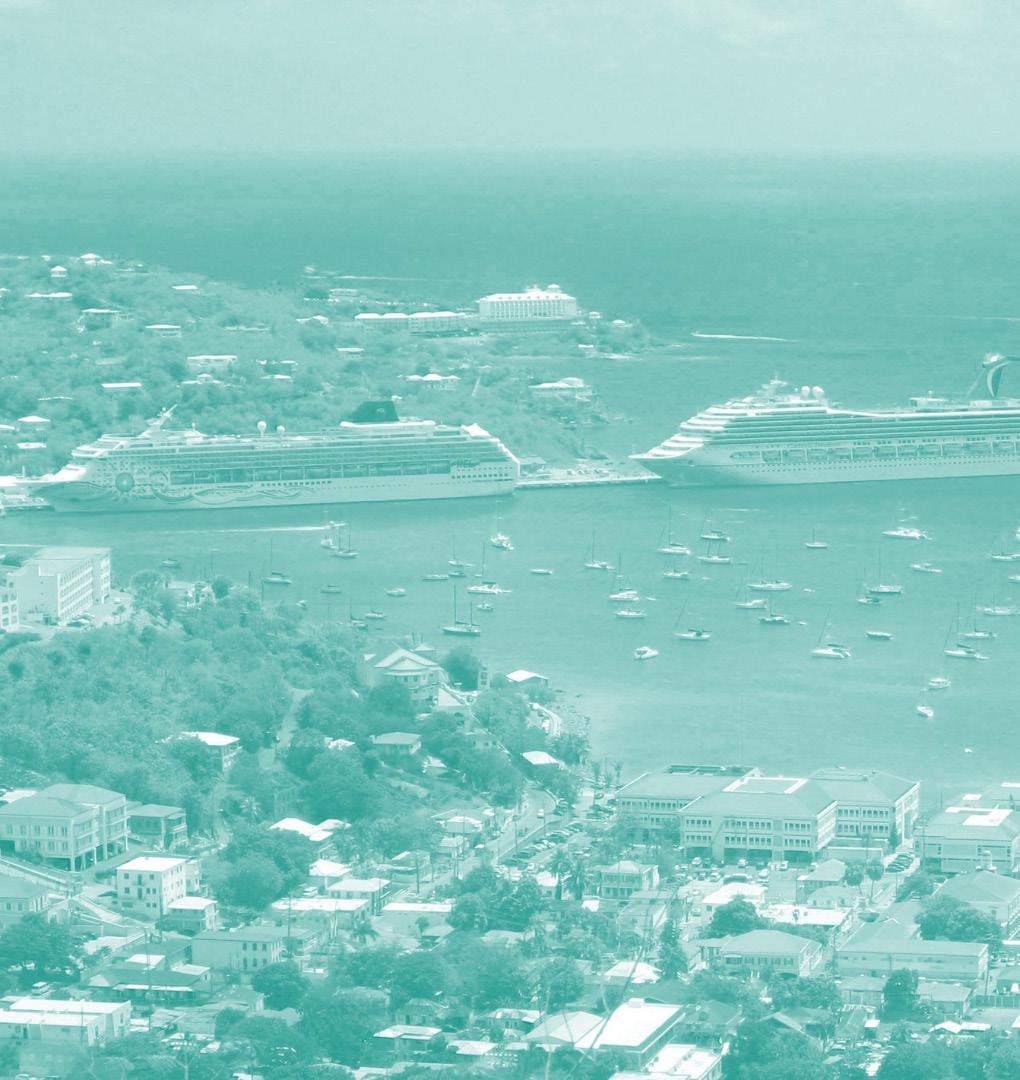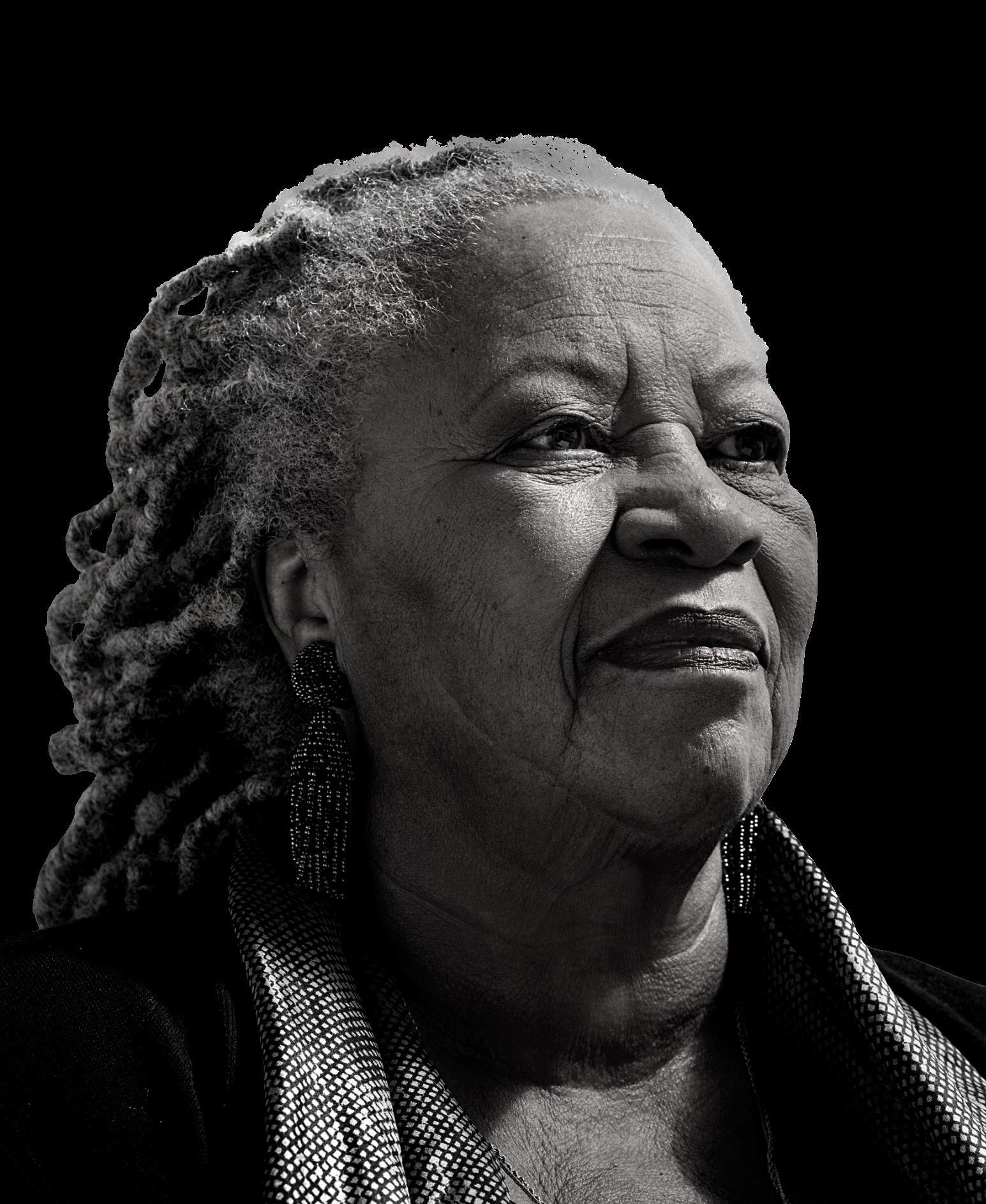
7 minute read
Travel
pg. 51
Decolonizing Travel
Advertisement
TAYLOR MURPHY
The role of international travel and tourism in modern society cannot be understated. Between business trips, vacation, and volunteerism, many of us travel abroad with frequency. However, not all are so privileged as to enjoy access to international travel. Often trips abroad necessitate access to money, time, and even passports and visas. Because privilege is so prerequisite to many international travel experiences, trips and tourism often coincide with traveling in a colonial mindset. Such a mentality can prove difficult to reject, given that in order to do so, one must critically evaluate tourism and its historical and current relationship to imperialism. This type of critical analysis requires asking how the tourism industry affects local communities on the receiving end of tourists - especially when said communities are descendents of Indigenous peoples who lost land and culture due to the invasion of colonial powers. Travel is not inherently bad; however, touring without mindfully considering the ramifications of a travel industry that exploits power imbalances is bad. Some examples of the negative effects of traveling without challenging colonial structures and mentalities include:
• The exotification and “othering” of global cultures and communities.
• The disregard of privacy and dignity through unethical documentation and social media practices while traveling.
• Cultural insensitivity and ethnocentric interactions.
• Neglect of land, water, and resource conservation.
• The destruction of local economic markets in favor of large corporate tourism
Travel pg. 52
It is important to recognize that colonization has ultimately shifted the privilege of access to international tourism to favor the descendants of old-world colonizers. Therefore, patterns of international travel, and who gets to participate in it, often reflect these power dynamics. Wealthy, white tourists visit countries with “poor,” non-white inhabitants, often exuding damaging attitudes and engaging in problematic behavior along the way. It is therefore in the interest of ethical social impact practitioners to encourage the decolonization of travel and tourism practices.
Colonial Background
Among the most significant legacies of colonization is the seizure and privatization of land, stripping Indigenous peoples of sovereignty over the physical environment and the resources it provides. It would be remiss to discuss the colonial influence of travel without pointing to the explicit ties the modern tourism industry has to the imbalance of who can afford to purchase and develop land. Think of the numerous Western-owned, luxury resorts built atop formerly communal, Indigenous territories. Or the development of corporatized seaports for giant cruise ships, disrupting local industries and flooding residential neighborhoods with a steady flow of ever-changing tourists. The industry forces locals to abandon traditional modes of income generation for the more lucrative appeal of selling services and souvenirs to tourists, while it wreaks havoc on the environment and creates further dependence on Western foreigners.
The influence of colonization on modern travel does not end at land ownership, but extends to the access today’s tourists have to wealth. We must understand systems of discriminatory policy in order to acknowledge how systemic wealth disparity
pg. 53 Travel

Travel pg. 54

has influenced who can afford to travel. For example, in the U.S. alone, redlining policies extending from the 1930s to the 1960s excluded racial and ethnic minorities from the housing loans that allowed many white Americans to become homeowners and build wealth directly after the devastation of the Great Depression. Although these policies are no longer in place, their consequences have largely shaped wealth disparities between Americans of color and their white counterparts to this day. On a global scale, colonization left countries with little infrastructure or governmental support after gaining independence, crippling their economies and putting them in debt to Western nations who gained continued power by offering international loans. Even now, formerly colonized countries’ own governments follow the colonizers’ lead by prioritizing the use of land for corporate interests, often finding themselves in conflict with Indigenous peoples that would rather protect the lands from foreign exploitation. This frequently results in violence towards and the displacement of these communities.
In the present, one can clearly see how the generational effects of oppressive and discriminatory systems have prevented marginalized communities from wealth accrual, and ultimately from access to international travel and tourism. Putting it bluntly, international travel just is not as accessible to those who aren’t white and wealthy.
pg. 55 Travel
Due to the demographic imbalance of who can afford to travel, ethnocentric and savioristic attitudes are common towards other countries and cultures, especially those of the Global South. Such attitudes have been coined as the “tourist’s gaze.” The tourist’s gaze reflects the apparent lack of relatability between a tourist and a native due to the tourist’s inaccurate, paternalistic, and condescending view of the local culture and inhabitants. This concept is informed by what Toni Morrison refers to as the “white gaze,” a gaze “informed by white supremacy.” This ultimately harms the dignity and stifles the growth of surrounding native communities by burning bridges of empathy, respect, and trust between travelers and locals.
Examples of Decolonization
In a misguided attempt at “doing good” while travelling, many privileged tourists have engaged in “voluntourism,” the practice of going on trips abroad, usually facilitated by a travel company or nonprofit organization, where vacation is mixed with “service projects.” While altruism is better than apathy, and voluntourists act with good intentions, the impact of their actions can be very damaging in the way that it furthers colonial modes of travel. Not only do majority white and wealthy travelers participate, but insidiously they become even less likely to examine their actions as they feel absolved of guilt due to their “service” to local communities. Oftentimes these service projects are patronizing, ineffective, and offer no long term support, while additionally failing to take into account actual community needs.
Fortunately some organizations, tourism providers, and activists are helping tourists to lessen their tourist gaze, respecting local communities, and creating access to travel for historically marginalized communities.
Nuru Tours (@nuru.tours) is a Blackowned travel company dedicated to creating tourism opportunities that connect Afican youth with other youth of the Black Diaspora. Their aim is to help decolonize travel in Africa by reclaiming the power of the Black narrative, and expanding who has access to tourism opportunities in Africa. As their Instagram explains, “[Nuru Tours] aims at connecting African youth globally, because the youth is one of Africa’s greatest resources that (currently) isn’t being mobilised and utilised correctly.”
Toni Morrison
pg. 56

pg. 57 Travel
Etnica Travel (https://www.etnicatravel. com) is a Guatemalan-owned social enterprise that curates trips where tourists can stay with and learn from locals. The company “[empowers] local actors to operate... immersive community-based travel experiences…[and] work under principles of fair trade, sustainability and co-creation valuing the cultural and natural heritage Guatemala has to offer.” Etnica Travel makes sure the tours they provide directly support local businesses and communities, and helps tourists to interact in dignified and ethical ways. Tourists stay at Guatemalan-owned lodging, eat at Guatemalan-owned restaurants, and enjoy tourism experiences straight from locals, without relying on a middle man. Etnica Travel also supports locally-run community organizations with a portion of their profits.
Vayando Travel (@vayandotravel) is a tech startup piloting a platform that helps connect responsible tourists directly to local entrepreneurs. The resident innovators do what they normally do for a living, but as a unique cultural experience for foreign travelers. This earns them a fair wage and the chance to portray themselves authentically. The platform gives locals - who normally
Travel pg. 58
would not have the means to market to or connect with Westerners - a chance to seize more control over and benefit from tourism in their area.
Conclusion
Ultimately, to further decolonize travel, sovereignty of travel destinations must return to native communities. By centering the role of Indigenous peoples and local inhabitants in the travel and tourism industry, we can start to prioritize modes of travel that directly benefit local economies, respect local autonomy and culture, and emphasize environmental sustainability.
Additionally, we can view travel and tourism as opportunities for communal sharing, marked by a commitment to respect, dignity, and equity. Currently, travel is marketed and advertised as a white person’s expensive pastime. Instead, marketing around travel must transition to a message of access and possibility for a wide range of individuals desiring to see more of the world and learn from local communities in ways that do not violate or cause damage. Tourists themselves must stop romanticizing uncomfortable stories and proceed carefully to engage them.
The question we must ask ourselves as global citizens is “How might we ethically share in this world together?” We are all interconnected - from the resources we share to the experiences we crave. We must take accountability for settler tendencies while being open to possibilities outside of colonial ethics. When it comes to exploring the world through travel and tourism it is a moral responsibility to look out for each other through decolonized practice emphasizing compassion and care.









